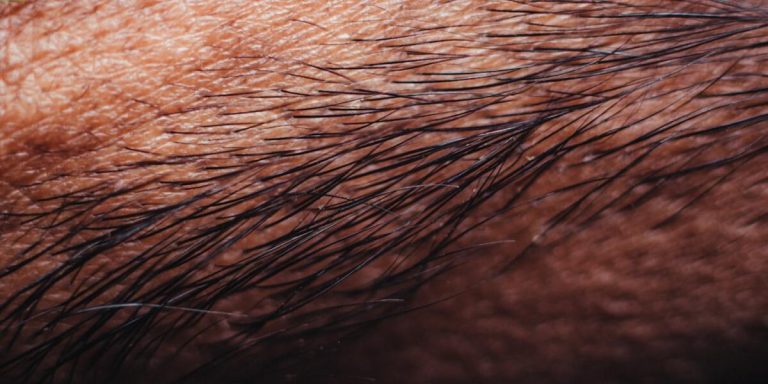Does Sjogren’s Cause Hair Loss? A Comprehensive Study on the Correlation
The question “Does Sjogren’s cause hair loss?” is something that has been asked by many individuals who are both suffering from the condition and those suspecting they might have it. The correlation between Sjogren’s Syndrome, an autoimmune disease characterised by dryness of eyes and mouth, and the occurrence of hair loss seem to puzzle quite a number of people.
Setting sail on this comprehensive study helps unravel this mystery as we delve into scientific research findings, expert opinions, real-life experiences while also highlighting some prevention strategies. A clearer understanding can indeed be instrumental in managing these conditions better if not completely eliminating them.
Did you know?
A surprising yet verifiable fact is that Sjogren’s Syndrome, an autoimmune disease primarily affecting tear and saliva glands, can indeed indirectly contribute to hair loss. This occurs as the body mistakenly attacks its own cells, including those in hair follicles.
Understanding Sjogren’s Syndrome and Hair Loss
Sjogren’s Syndrome is an autoimmune condition that primarily affects moisture-producing glands, resulting in common symptoms like dry eyes and mouth. But can it cause hair loss? The short answer is yes.
Even though Sjogren’s itself may not directly cause hair loss, the associated factors of this condition can contribute to thinning tresses.
Sjogren’s syndrome often puts significant stress on the body due to persistent inflammation. This chronic tension can push your system into a state known as telogen effluvium – temporary hair shedding that occurs at much higher rates than usual after a shock or traumatic event.
Prolonged inflammatory stimuli from conditions like Sjogren’s syndrome disturb the balance between growth (anagen) and resting (telogen) phases of hair. This causes your scalp to accelerate through cycles of excessive shedding with less regrowth.
Moreover, medications used for treating Sjögren’s Syndrome might play part too in initiating or exacerbating existing hair fall issues by affecting normal follicular function. Medicines including hydroxychloroquine or methotrexate are known contributors in people reporting cases of diffuse alopecia commonly noticed amongst those suffering from rheumatologic disorders including our subject at hand- sjögrens syndrome.
The Connection Between Autoimmune Disorders and Alopecia
Sjogren’s Syndrome, an autoimmune disorder primarily affecting the moisture-producing glands of the body, often leads to varied complications. One such consequence that is not frequently discussed but equally distressing is hair loss or alopecia. To understand whether Sjogren’s Disease can cause baldness – a concerning question for many patients – we must start by examining its underlying mechanisms.
Autoimmune disorders like Sjogren’s syndrome are characterized by the misdirected attack of one’s immune system on healthy cells and tissues in their bodies. In this case, the main targets are your salivary and tear glands leading to hallmark symptoms – dry eyes and mouth.
Hair follicles aren’t typically attacked directly by these antibodies; there isn’t much scientific evidence pointing towards direct causation between does sjogrens cause hair loss? However, it doesn’t mean they’re totally unrelated either.
The relationship between autoimmune diseases like Sjögren’s syndrome and Alopecia Areata (a type of non-scarring alopecia) has been indicated in several studies worldwide. For instance, research conducted at Keele University School of Medicine found 16% outpatients diagnosed with primary or secondary SS were also affected with various types (<1% scarring vs >15% non-scarring) forms oаlopecias .
Diagnosing Hair Loss: Is it Linked to Sjogren’s?
Understanding the link between Sjogren’s Syndrome and hair loss can become easier when we delve into a detailed diagnosis process. If you’ve ever wondered, “Does Sjogrens cause hair loss?”, then this is where you’ll find your answer.
Sjogren’s syndrome primarily affects moisture-producing glands leading to symptoms like dry eyes and mouth. However, manifestations aren’t just limited to these; it may also potentially be an underlying reason for unexplained hair shedding episodes. Our body’s auto-immune response in such situations often targets healthy tissues including those associated with our strands’ growth cycle at times.
The first step towards diagnosing if your ongoing sparsity or receding line relates back to Sjögren’s starts from recognizing both typical as well as less familiar signs of this disorder. Besides experiencing persistent aridity sensations across various parts of the body despite proper hydration measures taken, severe fatigue instances could provide another clue here.
Examining the Impact of Sjogren’s on Scalp Health
Sjogren’s syndrome is an autoimmune disease that primarily affects the moisture-producing glands of the body, leading to symptoms like dry eyes and mouth. However, its impact on hair health is less well-known but equally significant. The connection between Sjogren’s and scalp health may not be immediately apparent; however, a deeper investigation reveals telltale signs.
The reduction in gland functionality due to Sjogren’s can affect sebum production—the natural oil secreted by our skin—including the scalp. As one of nature’s moisturizers for our hair strands, insufficient sebum levels could mean more vulnerability to breakage and dullness because it lacks sufficient lubrication.
Additionally, this disorder often presents itself alongside other conditions such as lupus or rheumatoid arthritis—both known triggers for alopecia—areata type hair loss—as they induce severe inflammation which disrupts normal follicle function ultimately resulting in thinning or complete cessation of growth; hence establishing another link towards understanding if does sjogrens cause hair loss.
Distinguishing whether your hair fall is caused by something transitory like stress—or from an underlying systemic condition—is paramount being aware about these possible correlations assists you stepping up with proactive measures thereby preserving both your mane’s appeal plus density while living life wellness-empowered despite having been diagnosed.
How Sjogren’s Affects Hair Follicles
Sjogren’s syndrome is a chronic autoimmune disorder that primarily affects the body’s moisture-producing glands. Your question would be, “does Sjogrens cause hair loss?” Here are some ways this condition may impact your hair follicles.
Firstly, it is vital to understand how our immune system functions in normal conditions. Its purpose is to attack pathogens and foreign bodies while leaving our cells intact. However, with diseases like Sjorgren’s Syndrome, there seems to be an identity mix-up where elements of our own system become targets for destruction – including sebaceous glands on the scalp.
Sebaceous glands secrete oils called sebum which keeps both skin and hair moisturized naturally. In individuals dealing with Sjogren’s Syndrome though, these oil-secreting gland activities might suffer impairment resulting in dryness through various areas of importance – including the scalp area.
Scalp health forms a crucial part of overall hair well-being as roots nestle within its layers accessing nutrients transferred via blood capillaries beneath them; any disruptance in nutrient flow or hydration levels can weaken these roots leading towards damage over time manifesting commonly as reduced growth rate or increased shedding frequency i.e., potential balding symptoms.
Common Symptoms of Hair Loss in Sjogren’s Patients
Sjogren’s syndrome, an autoimmune disease known to affect the exocrine glands, plays a significant role in scalp health. The common question that runs through most people’s minds is – “does Sjogrens cause hair loss?” To answer this, it’s essential to understand how Sjogren’s Syndrome operates and its impact on your body.
Hair loss can indeed be one of the distressing symptoms for patients diagnosed with Sjögren’s syndrome. Our bodies produce natural oils or sebum from these very same exocrine glands. When affected by Sjögren’s, they tend to underproduce moisture-inducing elements like sebum causing dryness not only in eyes and mouth but also across our skin including our scalp impacting overall hair growth.
Commonly reported among individuals suffering from this condition are instances of diffuse thinning where hair evenly thins out over large regions. This could potentially lead towards visible patches devoid of any healthy follicles if untreated or neglected early on.
Management Strategies for Hair Loss Due to Sjogren’s
Sjogren’s syndrome, an autoimmune disorder characterized by the body’s immune system attacking its own tissues and organs is a known cause for hair loss. The link between Sjogren’s disease and alopecia largely lies in how our bodies respond to inflammation – a common consequence of such disorders. As the glandular systems responsible for tear production become inflamed, so too can other bodily functions be influenced adversely – particularly those related directly or indirectly to hair growth.
Dealing with any health condition is challenging enough on its own; yet when it leads to highly visible changes like thinning strands or bald spots, it may further amplify emotional distress alongside physical discomforts. Fortunately, contemporary research has brought forth varied management strategies that could help mitigate this concern specifically tied with Sjogren’s-induced hair loss.
Adopting a healthier lifestyle through maintaining optimal nutrition levels remains one significant strategy against managing hair fall due to Sjogren’s Syndrome. Vitamins A, D and E along with Omega-3 fatty acids have been found beneficial towards restoring scalp health thereby curbing excess shedding while encouraging new growth simultaneously.
Another important aspect involves mitigating stress wherever possible since such conditions tend exacerbate auto-immune responses thus escalating existing issues including that around shedding more than usual amount of strands daily.
Effective Treatments Tailored for Autoimmune-Related Alopecia
The reality can be baffling when one ponders “does sjogrens cause hair loss?” The answer is yes, it does. Sjögren’s syndrome is an autoimmune disorder marked by dry eyes and mouth that may lead to various complications, including alopecia or hair loss. Such a revelation prompts the need for effective treatments tailored specifically to combat autoimmune-related alopecia.
There are many viable and innovative strategies available in 2023 to manage this issue. By understanding how these therapies work towards reversing hair loss caused due to autoimmunity disorders like Sjogren’s, you can better decide which option suits your personal needs best.
1) Medication: As with other types of illnesses linked with immunity dysfunctions, specialist-prescribed medication presents a potent solution here too.
2) Topical Treatments: Applied directly onto the scalp skin where they penetrate into follicles boosting regrowth activity; topical treatments form another powerful tool against immune-triggered baldness.
3) Immune Modulators: These drugs help normalize overactive immune responses targeting healthy follicle cells – offering hope for those undergoing unjustified ‘hair attacks’.
4) Diet & Lifestyle Modifications: Together with medical intervention, changes in lifestyle habits (including stress management), along with nutrient-rich diets high on vitamins known for promoting strong strands could potentially bring about positive shifts.
Lifestyle Modifications to Minimize Hair Loss from Sjogren’s
Studies suggest Sjogren’s syndrome can contribute to hair loss. However, managing this condition and making necessary lifestyle modifications may help lessen its effect on your precious mane.
1. Balanced Diet: Consuming a balanced diet rich in vitamins A, C and E as well as proteins is beneficial for improving scalp health and hair growth. Nutrients like iron, zinc or biotin can also aid in strengthening the roots of your hair.
4.Stress Management Techniques : Stress has been linked repeatedly affecting factors concerning general wellbeing alongside exacerbating symptoms associated with autoimmune diseases such as sjorgen’s ; Practicing yoga ,meditation routines regularly result reduced stress leves alongwith boosting immune system efficiency.
5.Quit Smoking And Limit Alcohol intake – Both smoking alcohol consumption have been discovered producing negative effects upon autoimmune disease patients escalating their symptoms severity gravely .
Conclusion
Sjogren’s syndrome can cause hair loss, but its effects vary between individuals. If you notice unusual shedding or bald patches along with other symptoms of this condition, seek medical attention. Your doctor may refer you to a dermatologist or trichologist experienced in diagnosing complex cases.
Furthermore, consider equipping yourself with more knowledge on this subject rather than conceding defeat before understanding all possible factors at play here. Remember: Hair loss doesn’t happen without reason. Dive deeper into exploring different potential causes mentioned throughout our website which offers vast resources related to ‘Hair Loss Causes.’ Any struggle seems less daunting when faced armed not just courage but also awareness about what exactly is happening and why.







